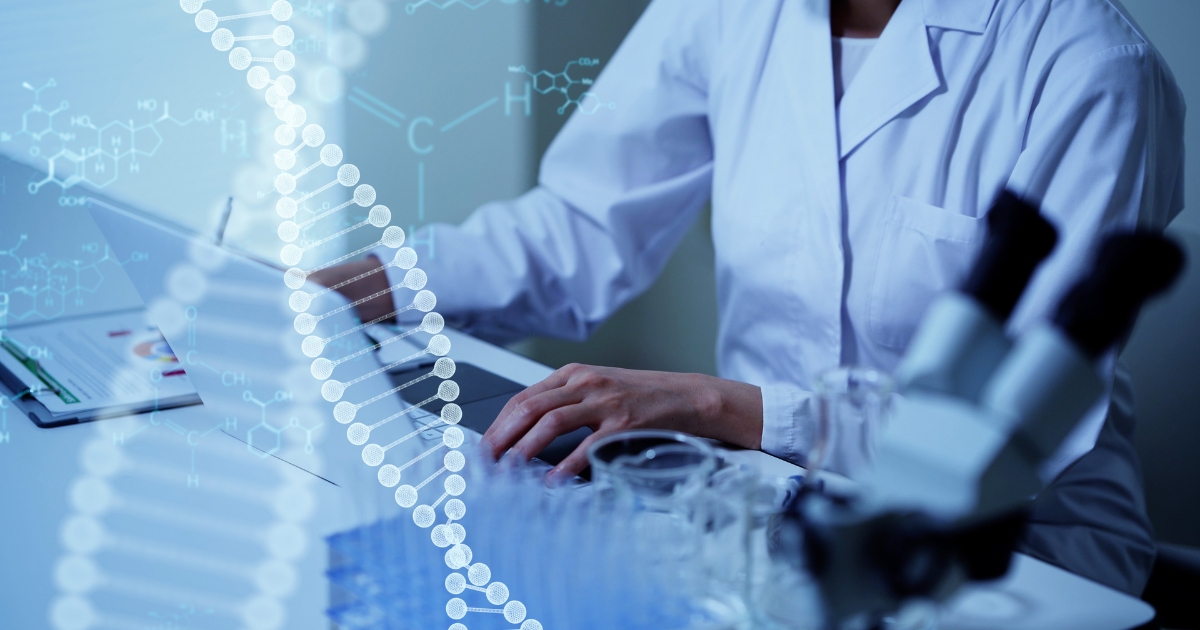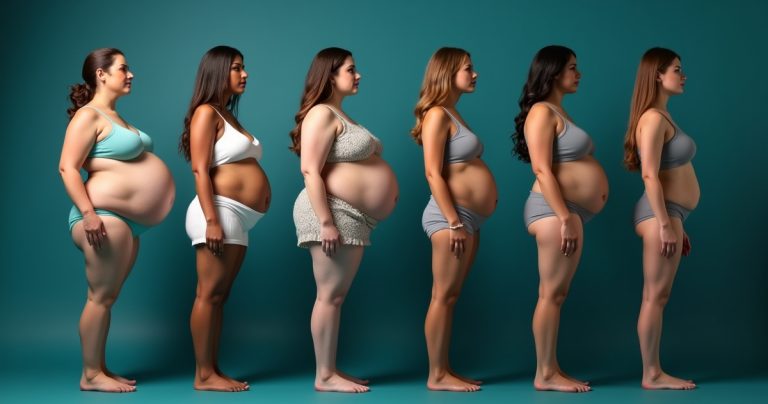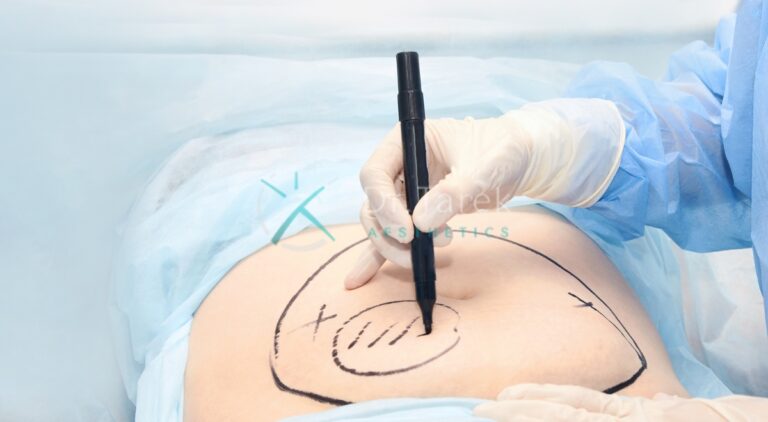In the ever-changing realm of cosmetic surgery, the significance of genetics in liposuction results is becoming increasingly clear. This article explores the impact of genetics on liposuction outcomes, specifically analysing factors like body fat distribution, metabolic rate, and healing processes. Moreover, it investigates how genetic testing can customise treatment plans and predict surgical results.
A Simple Explanation of the Concept of Genetics
Genetics, the study of heredity and inherited characteristics, delves into the intricate process of how traits pass from parents to offspring through genes. This field is essential for comprehending why individuals respond differently to procedures like liposuction. Understanding genetics can unravel the fascinating reasons behind these variations in response.
| Term | Definition |
| Gene | A segment of DNA that carries the instructions for a specific trait. |
| Allele | A version of a gene. |
| Genotype | The set of genes an individual carries. |
| Phenotype | An individual’s observable characteristics, determined by genetic and environmental factors, best liposuction results. |
Genetic interaction with body fat distribution
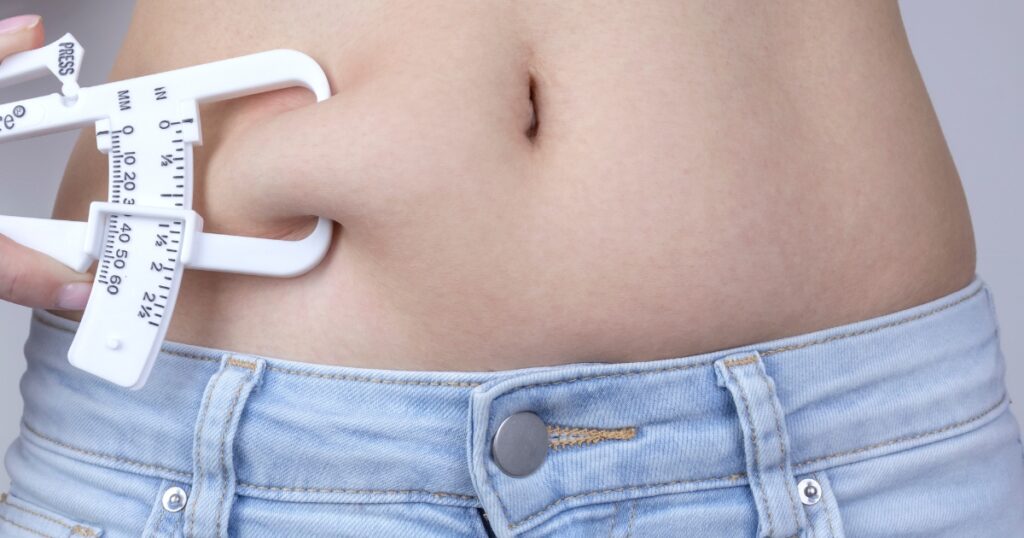
Regarding body fat distribution, our genetic makeup significantly influences how much fat accumulates and where it is stored. Variances in genes explain why certain individuals accumulate fat in specific areas more than others. Recognizing this genetic impact provides valuable insights into achieving optimal liposuction results.
- Genetic factors heavily influence the location and distribution of body fat.
- Genetic variations can lead to diverse patterns of fat distribution, elucidating why certain individuals tend to accumulate more fat in specific regions.
- Research conducted in the field holds significance as it yields valuable insights for predicting liposuction outcomes and customising treatment plans.
Unpacking the Genetic Contribution to Body Shape and Weight
Genetics plays a significant role in shaping our body, determining its size, weight, and even influencing factors like metabolic rate and appetite. It also affects our inclination towards exercise and ultimately impacts our body weight. However, it’s important to note that various environmental and lifestyle variables can influence genetic factors.
Book A Consultation With Dr Tarek Bayazid
Top-rated Plastic Surgeon For Liposuction in Dubai
Installment Plan Available
- Genes can influence the body’s metabolism, affecting how efficiently it burns calories.
- Environmental factors and lifestyle choices can interact with genetic factors, creating a complex interplay determining our body’s shape and weight.
Do ‘Fat Genes’ Exist?
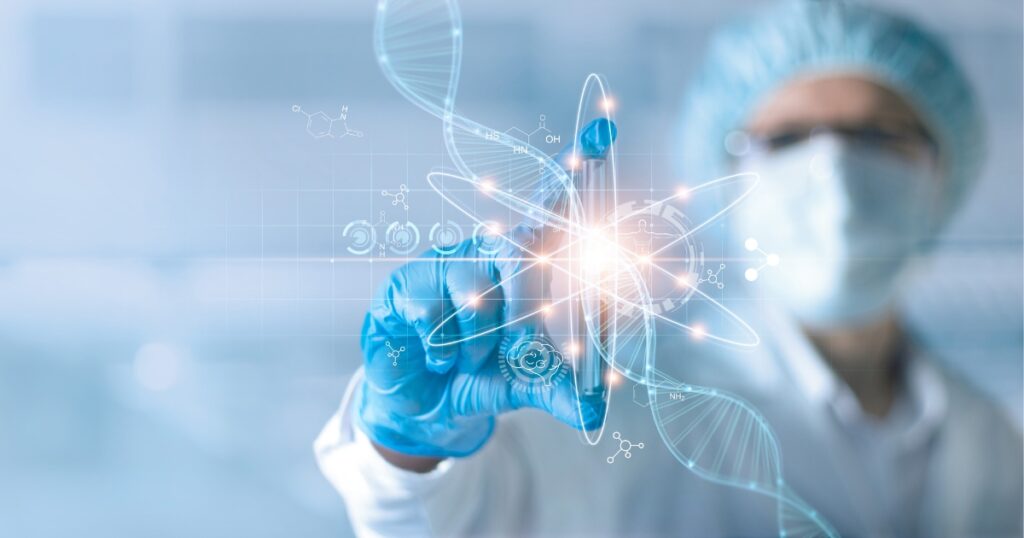
Ongoing research explores the concept of ‘fat genes,’ which are specific genetic variations linked to increased body fat. These genes have the potential to influence how the body stores and burns fat, making them a subject of intensive study about obesity. Understanding these ‘fat genes’ could provide insights into why certain individuals experience varying outcomes from liposuction procedures
- Genetic Influence on Weight: Scientific research reveals a significant role genetics plays. It has been established that our body weight is decisively influenced by our genetic makeup, accounting for approximately 40-70% of the variations observed in individuals’ weights.
- FTO Gene: one of the most recognized genes linked to obesity, is known to have variants that influence appetite and metabolism. These genetic variations increase the risk of developing obesity in individuals who possess them.
- MC4R Gene: The melanocortin 4 receptor (MC4R) gene is another significant gene. Mutations in this gene can cause increased appetite, especially for high-fat foods, and lower energy expenditure.
- Gene-Environment Interaction: ‘Fat genes’ don’t work alone. They team up with environmental factors like diet and exercise. Take, for instance, a person carrying the ‘fat gene’ who may be more susceptible to weight gain when consuming a high-calorie diet compared to those without the gene.
- Personalised Medicine: In the realm of personalised medicine, a deeper understanding of these “fat genes” holds the key to developing tailored treatments for obesity. By unraveling an individual’s unique genetic makeup, it becomes possible to customise interventions and address this pervasive issue more effectively.
An Emerging Research Field, Genetics In Liposuction Results
Research increasingly emphasises the influence of genetics in the outcomes of liposuction. Specific genetic factors play a role in how the body reacts to the process and recovers afterward. By understanding these factors, experts can potentially forecast liposuction results and customise treatment plans accordingly.
- Individual Differences: Some individuals may see better results from liposuction due to their genetic makeup. These genetic factors could affect how the body stores fat and recovers post-operation.
- Genetic Impact on Fat Distribution: Some genes are thought to influence where the body stores fat. Liposuction may perform differently in different areas depending on this factor.
- Recovery and Healing: Genes could also impact how the body heals after surgery. This might influence the overall result and the speed of recovery after liposuction.
- Risk of Complications: Certain genetic factors might increase the risk of complications during or after surgery. This could affect the safety and effectiveness of liposuction.
- Potential for Personalised Treatments: Understanding these genetic factors could help tailor liposuction treatments to individuals, improving results and reducing risks.
Key Genetic Variables Influencing Liposuction Outcomes
Several genetic factors can impact the outcome of liposuction. These include the speed of metabolism, distribution of fat, and rate of tissue healing. Such factors play a crucial role in determining the overall success and patient satisfaction following the procedure. Further research holds promise in unveiling specific genes associated with improved liposuction outcomes.
| Genetic Factor | Impact on Liposuction |
| Metabolism Speed | Affects how quickly the body adjusts to fat removal. |
| Fat Distribution | Can influence where fat is likely to reaccumulate after surgery. |
| Tissue Healing | Can influence the recovery time and the final appearance after surgery. |
Potential for Custom Liposuction: Genetic Testing and Treatment Planning
The advancement of our understanding of genetics enables the creation of personalized liposuction treatment plans. Through genetic testing, we can now anticipate individual responses to liposuction and make informed treatment decisions. While the field continues to evolve, there is promising potential for utilising genetics to personalize cosmetic procedures such as liposuction.
| Aspect | Description |
| Genetic Testing | A genetic test could analyse specific genetic markers associated with fat storage, healing, and metabolic rate. This could help identify individuals with a better or worse response to liposuction. |
| Personalised Risk Assessment | By understanding a patient’s genetic profile, doctors can better assess each individual’s potential risks and benefits of liposuction. This information will make an informed decision about a procedure easier. |
| Individualised Procedure Planning | Based on the genetic profile, liposuction could target specific body areas where fat is more likely to be stored. Also, recovery expectations and post-operative care can be tailored to the individual’s healing capacities. |
| Targeted Aftercare and Lifestyle Changes | Post-operative care, including diet and exercise recommendations, can be personalised based on genetic factors. Individuals with certain genetic markers might benefit more from specific physical activity or dietary interventions. |
| Future Treatment Strategies | The information gathered through genetic testing can contribute to future treatment plans if necessary. For instance, if a patient’s genetics indicate a higher likelihood of fat redistribution post-liposuction, a long-term management plan can be created to help maintain the results. |
Weight Gain Following Liposuction and Its Genetic Implications

Many patients express concern about weight gain following liposuction. It is believed that genetics may play a significant role in determining how to maintain body fat after liposuction surgery.
Understanding these genetic influences can provide valuable insight on effectively managing body fat post-liposuction surgery.
| Tip | Description |
| Maintain a Balanced Diet | Consuming a balanced and nutritious diet is essential for preventing weight gain. This becomes even more crucial for individuals with a genetic predisposition to gain weight. |
| Regular Exercise | Maintaining liposuction results can be supported through regular physical activity. This helps by burning excess calories and preventing weight gain. It is important to customise the type and intensity of exercise according to an individual’s genetic predispositions. |
| Follow Post-operative Instructions | It is essential to follow all post-operative care instructions from the healthcare provider. This may include wearing compression garments, taking prescribed medications, and attending follow-up appointments. |
| Monitor Weight and Body Composition | Regular physical activity is beneficial for maintaining liposuction results. It helps burn excess calories and prevents weight gain. The type and intensity of exercise should be customised based on an individual’s genetic predispositions. |
| Consider Genetic Counseling | For those with a genetic predisposition for weight gain. It may be beneficial to consult a genetic counsellor or dietician specialising in genetic conditions. They can provide more personalised advice on managing weight and maintaining liposuction results. |
| Mental Health Support | Managing body weight and image can sometimes become overwhelming, especially for individuals who have a genetic predisposition to gaining weight. It is important to consider seeking mental health support, such as counselling or joining support groups. |
The role of genetics in liposuction results is being revolutionized by the influence of genetics, promising to reshape the future of cosmetic surgery. Genetic factors significantly contribute to body fat distribution and metabolism, determining the healing process. However, as these advancements unfold, it becomes crucial to navigate ethical considerations and responsibly handle genetic data usage.
Dr Tarek Bayazid, a highly skilled plastic surgeon in Dubai, is dedicated to offering an extensive range of top-rated aesthetic products. With a patient-centered approach and unwavering commitment to excellence in health and beauty, Dr Bayazid ensures unparalleled outcomes for his global clientele. His keen artistic eye further guarantees that patients receive the utmost quality of care.
Are you ready to unlock the full potential of genetics for phenomenal liposuction results? Book a consultation with Dr Tarek Bayazid today and unveil a personalized treatment plan tailored specifically to your unique genetic profile.
FAQs
What is the role of genetics in liposuction results?
In the realm of genetics, our bodies’ fat distribution, post-surgical healing, and response to fat removal processes are intricately determined. These genetic factors significantly influence the individual’s experience with liposuction and its outcomes.
Can genetic testing predict the outcome of my liposuction?
Genetic testing in liposuction shows great potential for predicting individual responses and improving treatment outcomes, although it is still an evolving area. By guiding treatment decisions, this technology holds promise for enhancing overall results.
What are ‘fat genes’?
Fat genes are specific genes that can make individuals more prone to accumulating body fat. Ongoing research aims to identify and comprehend these genes, as well as their role in obesity and the distribution of fat.Can genetics cause weight gain after liposuction?
Genetics may influence post-liposuction weight gain by impacting the body’s fat storage patterns. It is important to understand these genetic factors as they can guide post-operative care and provide lifestyle recommendations for patients.
How does Dr Tarek Bayazid use genetics in liposuction procedures?
When planning liposuction treatments, Dr Tarek Bayazid considers genetics’ impact on his patients’ body fat distribution, the healing process, and metabolic functions. As our knowledge regarding the influence of genetics on liposuction outcomes expands, Dr Bayazid is well-positioned to integrate these insights for a more personalised approach to patient care.
How does Tumescent Liposuction work, and what is it?
Tumescent liposuction is a cosmetic procedure that eliminates stubborn fat deposits. It involves injecting a solution into the fat to make it swollen and firm, then suctioning the fat and fluids through a small incision. The procedure offers benefits such as reduced blood loss and less pain, thanks to the components of the injected solution.
What techniques do surgeons use to ensure smooth results after liposuction?
Surgeons employ various techniques to ensure smooth results after performing liposuction. Tumescent liposuction, which was mentioned earlier, is known for producing smoother outcomes due to its precision and minimal tissue trauma.
Additionally, some surgeons may utilise specialised instruments and techniques such as laser-assisted liposuction to enhance skin tightening and contouring.
What should I expect during a liposuction consultation?
During a liposuction consultation, the surgeon assesses your medical history, discusses your aesthetic goals, and conducts a physical examination. The procedure is explained, including potential risks and complications.
Furthermore, the surgeon determines if you are an eligible candidate for the treatment.
What are the common side effects experienced after liposuction?
Side effects that are commonly experienced after liposuction include temporary bruising, swelling, soreness, and mild discomfort. These effects are typically manageable and tend to diminish within a few weeks.

